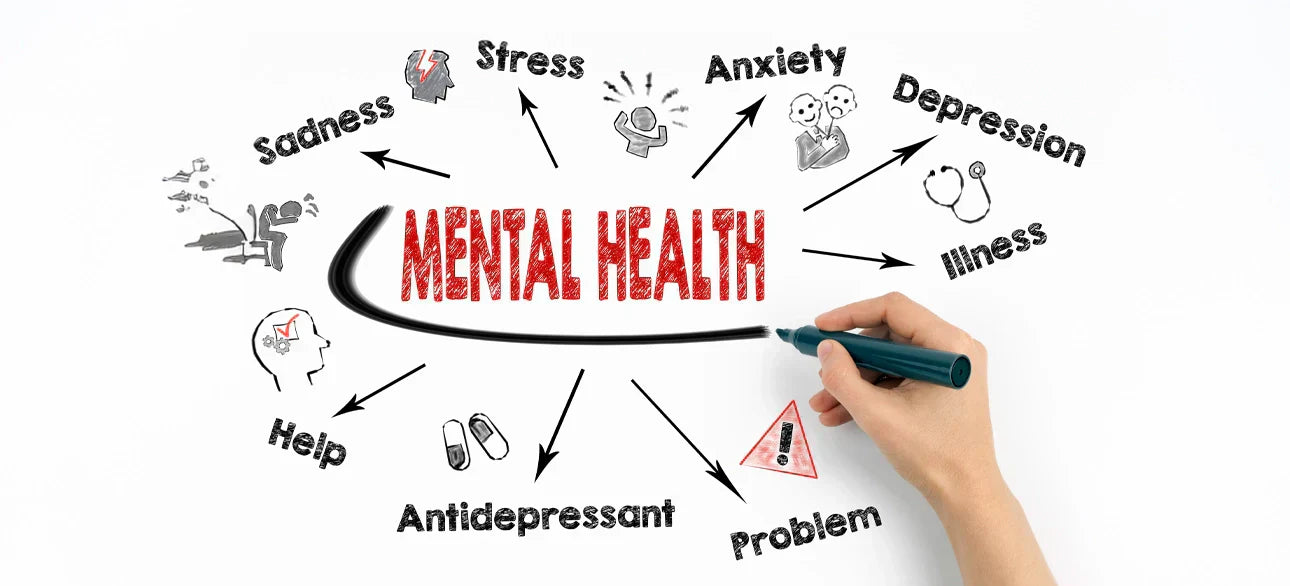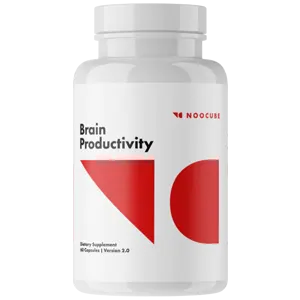40 Good Habits for Mental Health: You Can Try Today to Strengthen Your Mind
Strengthen your mind with these 40 good habits for mental health. Simple lifestyle changes, self-care tips, and mindful practices to enhance emotional well-being and overall happiness.
Advertiser Disclosure: We independently select all the products. If you click through links we provide, we may earn a commission.

Key Takeaways
- Mental health is just as important as physical health, and self-care habits are essential for emotional balance and resilience.
- Prioritize 7-9 hours of quality sleep each night, establish a consistent sleep routine, and avoid screens before bed to improve mental health.
- Techniques like deep breathing, journaling, and progressive muscle relaxation help manage stress and promote emotional regulation.
- Regular exercise, nature exposure, and activities like yoga or dancing improve both mental and physical well-being.
- A balanced diet rich in brain-boosting foods, staying hydrated, and reducing caffeine and processed food intake can positively impact mental clarity and mood.
- Mindfulness meditation and learning new skills help reduce anxiety and improve mental clarity.
Maintaining mental health is as critical as caring for your physical health. Both are deeply interconnected, influencing how we think, feel, and live. Yet, while the value of exercise and nutrition for the body is widely recognized, the importance of a mental health self-care routine often takes a back seat. You probably already know this - healthy habits for the mind are essential for fostering emotional balance, building resilience, and improving overall quality of life.
Daily habits for better mental health - talk mindfulness, adequate sleep, or meaningful connections - act as anchors when things get tough. These are among the best mental health practices, and they are not just about managing stress—they help us thrive.
This guide offers 40 simple ways to boost mental health. We’ve tried to blend science-backed strategies and practical, emotional well-being habits. You’ll find actionable steps to strengthen your mind and enhance your day-to-day well-being.
Good Habits for Mental Health - Sleep and Relaxation Habits
 Good Habits for Mental Health
Good Habits for Mental Health
1. Get 7-9 Hours of Quality Sleep Per Night
Sleep isn’t a luxury; it’s a necessity. Experts recommend adults aim for 7-9 hours of uninterrupted sleep each night. Quality sleep strengthens memory, regulates emotions, and reduces the risk of anxiety and depression.
2. Establish a Consistent Sleep Routine
Your brain thrives on routine. Going to bed and waking up at the same time daily—even on weekends—helps regulate your body’s internal clock. Over time, this consistency will lead to better, deeper sleep, making mornings far less groggy.
3. Avoid Screens at Least 1 Hour Before Bed
The blue light from screens suppresses melatonin, the hormone responsible for sleep. Scrolling social media or staring at a screen late at night can make it harder to fall asleep. Swap late-night screen time for a calming activity, like reading or journaling, to prepare your mind for rest.
 Sleep and Relaxation Habits
Sleep and Relaxation Habits
4. Try Meditation or Deep Breathing Exercises Before Bed
Calm your racing thoughts before sleep. Practices like guided meditation or deep breathing can ease tension and boost relaxation. These techniques lower your heart rate and encourage the mental stillness needed for better sleep. Addressing mental health stigma is also crucial, as it can prevent people from seeking help for issues that impact their rest.
5. Use White Noise or Calming Sounds to Enhance Relaxation
White noise machines or calming nature sounds can drown out distractions and create a soothing environment. From rainfall to gentle ocean waves, these sounds can guide your mind into a state of relaxation, making the transition to sleep much smoother.
6. Keep Your Bedroom Dark, Cool, and Comfortable
Your bedroom environment matters more than you think. A dark, slightly cool room mimics your body’s natural sleep conditions. Use blackout curtains, set the thermostat to around 65°F (18°C), and ensure your mattress and pillow support restful sleep.
7. Take Short Power Naps (10-20 Minutes) if Feeling Mentally Drained
Even short naps can lift brain fog and restore mental clarity. When energy dips mid-day, a quick 10-20-minute nap can rejuvenate your mind without leaving you groggy. Avoid longer naps, as they can interfere with nighttime sleep.
Good Habits for Mental Health - Stress and Emotional Regulation
 Good Habits for Mental Health - Stress and Emotional Regulation
Good Habits for Mental Health - Stress and Emotional Regulation
8. Practice Deep Breathing Techniques (e.g., Box Breathing, 4-7-8 Method)
Deep breathing is one of the simplest yet most effective ways to calm your mind. Techniques such as the 4-7-8 method—inhale for four counts, hold for seven, and exhale for eight—actively lower cortisol levels and soothe your nervous system. It’s a quick tool for emotional regulation, whether you're at work, home, or on the go.
According to Emily Johnson -Clinical and Health Psychologist at CHEO
Deep breathing exercises, such as the 4-7-8 method, are powerful tools for managing stress and promoting emotional balance. By focusing on your breath, you can lower cortisol levels, calm your nervous system, and regain mental clarity in just a few moments.
9. Engage in Journaling to Release Emotions and Track Mental Health
Checking in with yourself regularly can go a long way. Write whatever pops into your head at the end of the day, or maintain a constantly updating log of how you feel as the day goes by, and eventually, you should be able to pick up some trends; are there more good days than bad? What have you been stressed about in recent times? What do you find helpful when anxiety occurs? By finding answers to the following simple questions you obtain a better understanding of what evokes some feelings in you and what really helps you relax. Gradually, your journal evolves into a unique guide to getting to know and understand your mental health better and developing it.
10. Try Progressive Muscle Relaxation for Stress Relief
When stress invades your body, it often translates into tense muscles. Progressive Muscle Relaxation (PMR)—tensing and then releasing muscle groups one at a time—teaches your body how to relax deeply. This practice eases physical stress symptoms, promoting a sense of calm and emotional stability.
11. Learn to Say No and Set Healthy Boundaries
Saying ‘no’ isn’t rejection—it’s self-respect. Establishing boundaries protects your energy and mental space, preventing burnout and resentment. Whether it involves declining extra work or stepping back from unhealthy relationships, learning to say no is an essential skill for mental wellness and lifestyle changes.
12. Engage in Creative Activities (Art, Music, Writing)
Creative activities stimulate your brain and offer a therapeutic outlet for emotions. Painting, playing music, or writing stories can distract your mind from stressors, acting as a form of emotional release. These best mental health practices not only bring joy but also foster personal growth and self-expression.
13. Laugh More—Watch Comedies or Spend Time with Fun People
There are days when you have a bad day and all you need is to see your favorite movie or TV show to improve your mood. Whether it is a comfort show you have watched a million times: rewatching Parks and Recreation or your favorite stand-up special or something new that makes you laugh, the act of doing so leaves your brain with a healthy endorphin kick. Surrounding yourself with humorous people, podcasting comedy-related shows, or even watching funny videos of pets can help change your mood and provide you with a sense of connection and light relief from daily stress.
A great but easy way to encourage resilience and emotional motivational balance is by injecting some humor into your daily routine.
14. Take Regular Breaks from Work to Prevent Burnout
Continuous work without pauses drains your emotional reserves. Regular breaks, even a five-minute walk or stretching session, reenergize your mind and body. Scheduling these breaks into your day protects against fatigue and sustains productivity.
Good Habits for Mental Health - Physical and Outdoor Activities
 Physical and Outdoor Activities
Physical and Outdoor Activities
15. Exercise for at Least 30 Minutes Daily
Physical activity is among the best mental health practices; a proven mood booster and stress reliever. Whether you prefer walking, running, yoga, or hitting the gym, even 30 minutes of movement daily releases endorphins that combat anxiety and depression.
16. Spend Time in Nature (Parks, Forests, Beach)
Nature is a natural healer. A 2021 study shows that spending time outdoors reduces stress, increases happiness, and improves cognition. Being in green spaces allows your mind to reset, while blue spaces—such as rivers and oceans—foster a sense of calm. A stroll through a park or a trip to the beach is a simple way to boost mental health.
17. Try Grounding Techniques (Walking Barefoot on Grass/Sand)
These rituals are magic in times of high tension. A hot shower or foot soak can be relaxing when you need to freshen up after a long day of stress. This can loosen some of the tight muscles around your shoulders, back, and feet, where stress often hides. The subtle warmth of these practices increases blood circulation, relaxes the nervous system and sends a message to the body that it is time to relax. Not only do these warm-water activities relax the body, but they also enhance sleep, ease body pains, and even elevate mood. It is like pressing the reset button on your mind and body, allowing it to be easier to go through the chaotic day into a restful night (or a brighter outlook).
18. Stretch or Do Gentle Yoga to Reduce Physical and Mental Tension
Stretching and yoga are excellent ways to release built-up tension in both the body and mind. Gentle yoga poses encourage deep breathing and mindfulness, improving flexibility and lowering stress hormones.
19. Dance to Your Favorite Music—It’s a Natural Stress Reliever!
Dancing releases feel-good hormones, fights off stress, and gets you moving in a fun, carefree way. Whether you’re grooving solo to your favorite song or having a spontaneous dance session with friends, dance lifts your spirits and promotes emotional well-being habits.
Explore: How to Boost Your Serotonin Naturally
20. Engage in Gardening as a Therapeutic Hobby
Gardening is more than planting—it’s a therapeutic experience. Working with soil, nurturing plants, and spending time under the sun fosters tranquility and connection. This hobby offers a creative escape from everyday stress and contributes to healthy habits for the mind.
21. Practice Cold Water Therapy (Cold Showers or Ice Baths) for Mood Boosts
Cold water therapy may sound intense, but its mood-enhancing effects are backed by science. Cold showers or short dips in icy water trigger the release of endorphins and reduce stress levels.
Good Habits for Mental Health - Nutrition and Hydration
 Nutrition and Hydration
Nutrition and Hydration
22. Eat Brain-Boosting Foods (Nuts, Leafy Greens, Fatty Fish)
Your brain thrives on nutrition. Foods like walnuts, almonds, kale, spinach, and fatty fish (like salmon) are packed with omega-3 fatty acids, antioxidants, and essential vitamins, all of which support cognitive function and emotional stability. These foods help slow mental decline, reduce inflammation, and keep your mood steady, making them some of the best mental health practices for nutrition. For an extra boost, consider the best brain-boosting supplements to enhance these benefits.
Explore: How Vitamin D plays a crucial role in brain health
23. Drink Enough Water Daily to Stay Hydrated
Your brain is made up of almost 75% water, so staying hydrated is key to clear thinking and a stable mood. Even mild dehydration can increase feelings of tension, anxiety, and fatigue. Aim for at least 6-8 glasses of water daily to keep your energy up and your mind sharp. Hydration is one of the simplest ways to boost mental health.
24. Consume Green Tea for Mental Clarity and Relaxation
Rich in antioxidants and containing a moderate amount of caffeine, green tea is a gentle pick-me-up. It also contains L-theanine, an amino acid known to promote relaxation and reduce stress without making you drowsy.
25. Reduce Caffeine Intake After Noon to Avoid Sleep Disruption
In case you find anxiety has impaired your mental health, you may want to reduce the amount of caffeine you take overall. Although coffee is part of the everyday routine for many, caffeine may increase the sense of nervousness and restlessness in some individuals. You can also consider replacing your afternoon coffee with a calmer herbal tea or a less stimulating beverage such as green tea. Try cutting down on your day-to-day caffeine intake and see how it affects your mood and sleep patterns - a single change may yield noticeable results.
26. Avoid Processed and Sugary Foods That Cause Mood Swings
Processed snacks and sugary drinks might provide a brief energy spike, but they often lead to mood crashes. These foods can increase inflammation and disrupt blood sugar levels, triggering irritability and fatigue. Replace them with nutrient-rich alternatives to create a more stable mental wellness lifestyle.
27. Eat Probiotic-Rich Foods (Yogurt, Kimchi) for Gut-Brain Health
The connection between your gut and brain is undeniable. Foods rich in probiotics, such as yogurt, kimchi, and sauerkraut, promote a healthy gut microbiome, which has been linked to reduced anxiety and depression.
Explore: Foods for Brain Health -Top Nutrients to Boost Your Cognitive Function
Healthy Habits for the Mind - Mindfulness and Mental Exercises
 Mindfulness and Mental Exercises
Mindfulness and Mental Exercises
34. Practice Mindfulness Meditation to Stay Present and Reduce Anxiety
Mindfulness meditation is more than just sitting still; it’s about being present in the moment without judgment. A 2020 study shows it reduces anxiety, enhances emotional regulation, and even improves focus. To start, simply close your eyes, focus on your breathing, and allow any thoughts to pass without clinging to them.
Explore: 10 Ways to Improve Memory
35. Reduce Social Media Usage for Better Mental Clarity
Excess screen time, whether on social media or otherwise, can have a negative impact on overall well-being. Using your phone late at night can be harmful because of the blue light, which may interfere with your sleeping pattern and even cause eye damage in the long term. Start replacing an evening of screen activities with more soothing processes, such as reading, writing, or stretching. Minor tweaks such as these are not only beneficial to cognitive clarity but also aid in safeguarding your health later on.
Prioritize your mental well-being with these positive habits that can make a big difference. What’s your favorite mental health practice? Share your thoughts!
36. Read Self-Improvement Books for Personal Growth
Books are much more than stories—they’re tools for self-discovery and growth. Reading self-improvement books helps you learn new perspectives, gain insights, and nurture healthy habits for the mind.
37. Learn Something New (Language, Skill, Instrument) to Keep the Brain Engaged
Learning a new hobby can have miraculous effects on your mental health. Avoiding the familiar by studying something new can be a way to grow and make life more interesting, whether it is learning to garden, meeting a local theater troupe, trying your hand at photography or attending a yoga session. It is okay to have some trial and error until you find what you enjoy. Not only will you acquire some new skills, but you will also find joy in learning.
38. Listen to Uplifting Music or Podcasts That Inspire You
Carve out some time each day to actively seek more uplifting content whether it be your preferred playlist, a positive TED Talk, or an episode of an uplifting podcast. Engaging in something you enjoy and that you have to look forward to, whether it is listening to music you want to dance to or a podcast that interests you, can help brighten up (even a bad) day. It is not a solution to all the stress and anxiety, but making time to experience pleasant experiences is an easy, effective way to take care of your mental health.
39. Declutter Your Space—A Clean Environment Helps Reduce Stress
A cluttered environment often leads to a cluttered mind. Decluttering your space promotes mental clarity and reduces stress. Start small—clean a desk, organize your kitchen, or arrange your wardrobe.
40. Start Each Day with Positive Affirmations to Boost Confidence
The way you talk to yourself matters. Beginning your day with affirmations like “I am capable” or “Today will be a good day” sets a positive tone and builds self-esteem. Regular affirmations help rewire your thoughts, fostering a more optimistic mindset—one of the simplest ways to improve mental well-being.
Additional Strategies to Strengthen Your Mind
Smile to Feel Happier: Smiling, even when fake, makes the brain release endorphins which give you a good mood. Even a simple smile will make you feel better in difficult times and will brighten the day of the other person.
Enjoy foods that you love: Balance is an essential factor in nutrition. Although nutritious foods like leafy greens and salmon are good for the brain, sometimes emotional well-being is encouraged by guilty pleasures such as snacks. Enjoying food cultivates positive associations and leads to a lasting, healthy attitude to eating.
Make Your Bed for a Better Day: Making your bed accounts for having a productive start to your day. This little effort brings a feeling of achievement, self-esteem, and comfort when you get back late at night to your room. It is a small but effective habit with respect to mental health benefits.
Engage with Puzzles: Games such as crosswords, sudoku, and jigsaws are not just entertaining; they keep the mind sharp, mild the effects of stress, and ultimately heighten concentration. Solving puzzles successfully gives satisfaction and is an aid to long-term mental health.
Prioritize Alone Time to Recharge and Reflect: Spending time with yourself is not a bad thing and in fact it is essential to get some alone time to clear your mind and take care of yourself. Solo experiences regularly allow for processing thoughts, avoiding burnout, and enhancing self-understanding so as to make re-entry to social circumstances more rewarding.
Conclusion
Mental health isn’t all about grand gestures or overnight solutions; it’s a collection of small, steady habits that shape your emotional resilience and inner peace.
From connecting with loved ones to practicing mindfulness or simply drinking more water, every action matters.
Think of this as building a foundation—one thoughtful change at a time. Choose a habit that feels right for you and start today.
These tiny steps add up, creating a life of balance and well-being. You have the power to nurture your mind, so take it gently, one moment, one habit at a time. You've got this.
FAQs
References
Flawless Bloom has strict sourcing policies and relies on primary sources such as medical organizations, academic institutions, governmental agencies, and peer-reviewed scientific journals. Read more about how we ensure our content is accurate, thorough, and unbiased by reading our editorial process.
- The long-term memory benefits of a daytime nap compared with cramming: https://doi.org/10.1093/sleep/zsy207
- https://doi.org/10.1093/sleep/zsy207 https://doi.org/10.31744/einstein_journal/2023RW0371
- Effectiveness of Progressive Muscle Relaxation, Deep Breathing, and Guided Imagery in Promoting Psychological and Physiological States of Relaxation:https://doi.org/10.1155/2021/5924040
- Regular exercise is associated with emotional resilience to acute stress in healthy adults: https://doi.org/10.3389/fphys.2014.00161
- Associations between Nature Exposure and Health: A Review of the Evidence: https://doi.org/10.3390/ijerph18094790
- Earthing: Health Implications of Reconnecting the Human Body to the Earth's Surface Electrons: https://doi.org/10.1155/2012/291541
- Health effects of voluntary exposure to cold water – a continuing subject of debate: https://doi.org/10.1080/22423982.2022.2111789


































1 comment
Love this guide! It’s full of practical tips to improve mental health. I especially appreciate the focus on sleep and relaxation. I’ve started incorporating deep breathing before bed, and it really helps me unwind after a busy day. Highly recommend these tips to anyone looking to enhance their mental well-being!